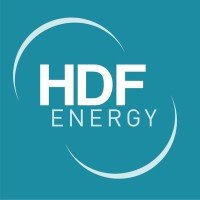Toyota to base its future city project on hydrogen
To realise a hydrogen-based society, among other things, it is essential to seamlessly integrate all the processes of production, delivery, and use.

Eneos Corporation has joined Toyota Motor Corporation for exploring the use of hydrogen energy at Woven City in Japan.
Eneos, Toyota and Woven Planet (a subsidiary of Toyota) plan to test hydrogen-based supply chain in and around Woven City. Eneos is a major hydrogen company operating 45 commercial hydrogen refuelling stations across four areas in Japan and developing technologies to support hydrogen production and build an entire hydrogen supply chain.
The partnership aims to pool expertise for fully exploring hydrogen’s potential. The three partners plan to promote carbon neutrality in mobility and city infrastructure to raise awareness about hydrogen. The four key areas for collaborations are:
- Eneos to build a hydrogen refuelling station near Woven City.
- Eneos will produce green hydrogen at the refuelling station, supplying to stationary fuel cell generators installed in the prototype city.
- Promoting the use of hydrogen-powered fuel cell mobility for logistics in and nearby Woven City.
- The partners will conduct advanced joint research on hydrogen supply.
Katsuyuki Ota, president of Eneos, said, “We believe that hydrogen energy will play an integral role in the realisation of carbon neutrality on a global scale and that Toyota is at the forefront of developing a fully hydrogen-based society.”
Akio Toyoda, President and CEO of Toyota Motor Corporation, said, “To realise a hydrogen-based society, in addition to the evolution of individual technologies, it is essential to seamlessly integrate all the processes of production, delivery, and use.
Toyota has been developing the prototype city of the future in Susono City, Shizuoka Prefecture, Japan, which was inaugurated on 23rd February 2021 by Toyota and Woven Planet Holdings, Inc., the subsidiary of Toyota responsible for a wide range of mobility development projects. The prototype city is based on three fundamental concepts: Human-Centered, Living Laboratory and Ever-Evolving city.
Woven City will have three types of streets interwoven with each other on the ground level. One will be dedicated to automated driving, another one to pedestrians and the third one to pedestrians with personal mobility vehicles. There will also be one underground road used to transport goods. The city community will initially have around 360 residents, eventually reaching about 2,000 individuals, including Toyota employees.
